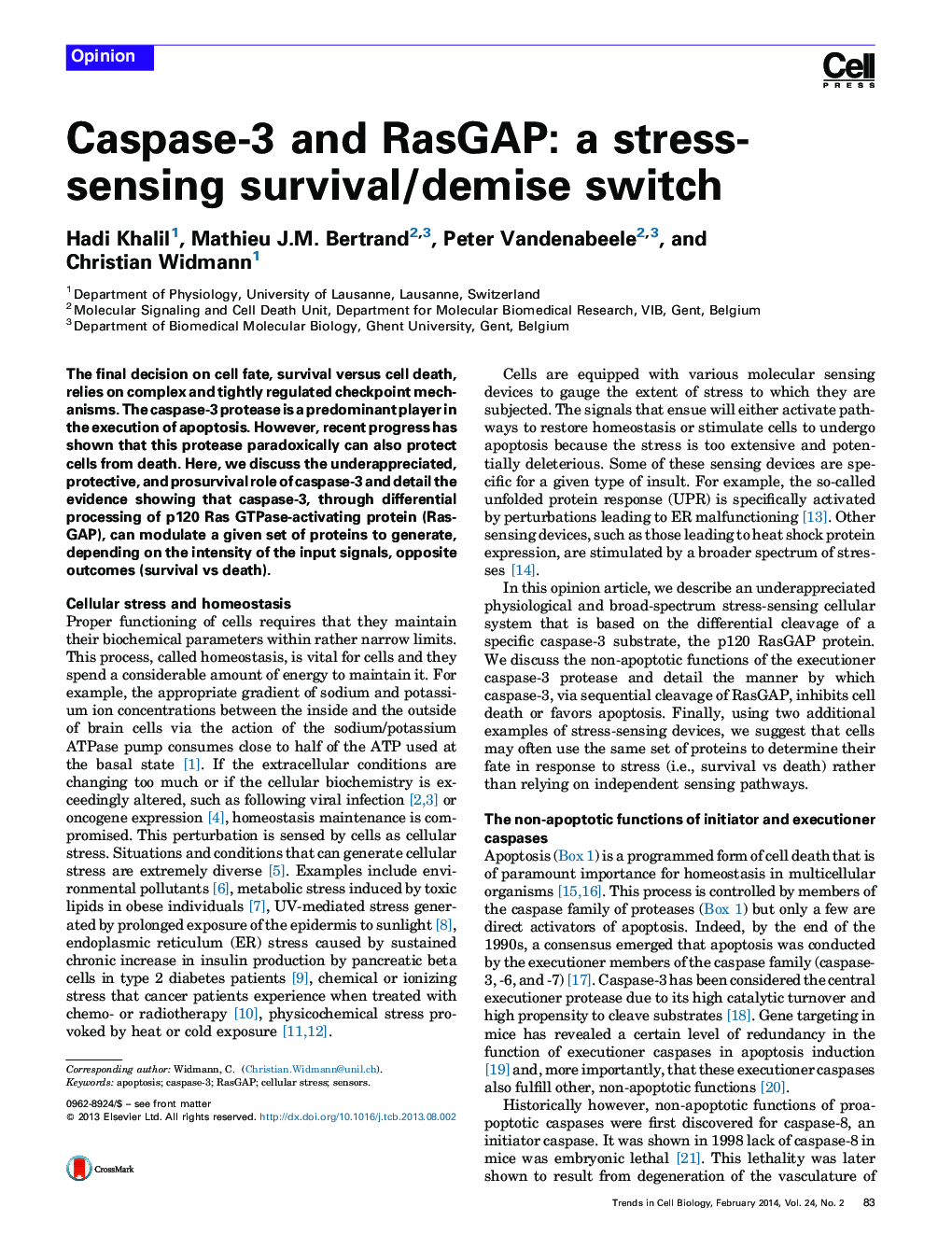| Article ID | Journal | Published Year | Pages | File Type |
|---|---|---|---|---|
| 2204435 | Trends in Cell Biology | 2014 | 7 Pages |
•At low levels of activation, caspase-3 can activate survival signals.•RasGAP is cleaved sequentially as caspase-3 activity increases.•The first cleavage of RasGAP generates an antiapoptotic fragment.•The second cleavage of RasGAP destroys the antiapoptotic fragment.
The final decision on cell fate, survival versus cell death, relies on complex and tightly regulated checkpoint mechanisms. The caspase-3 protease is a predominant player in the execution of apoptosis. However, recent progress has shown that this protease paradoxically can also protect cells from death. Here, we discuss the underappreciated, protective, and prosurvival role of caspase-3 and detail the evidence showing that caspase-3, through differential processing of p120 Ras GTPase-activating protein (RasGAP), can modulate a given set of proteins to generate, depending on the intensity of the input signals, opposite outcomes (survival vs death).
